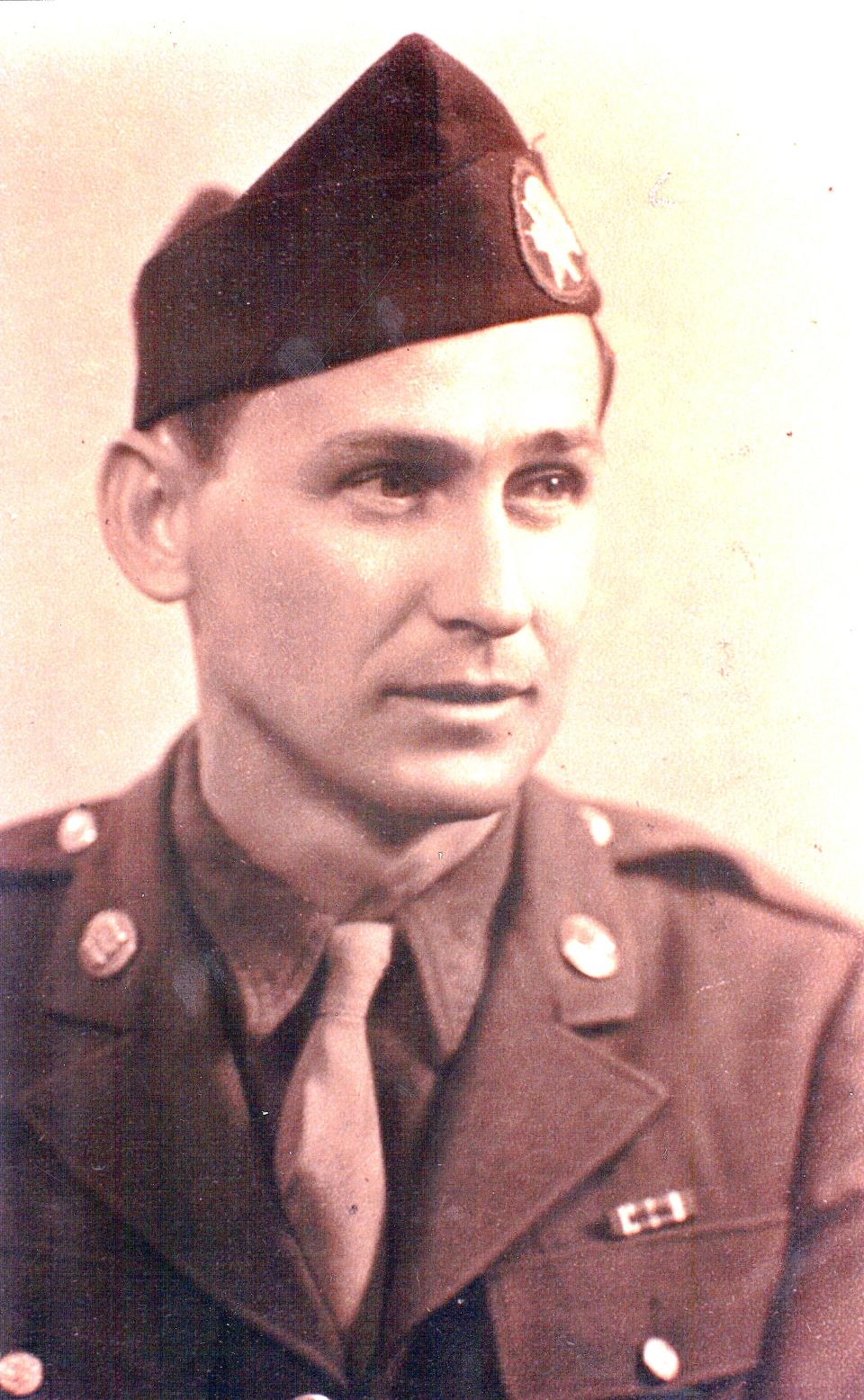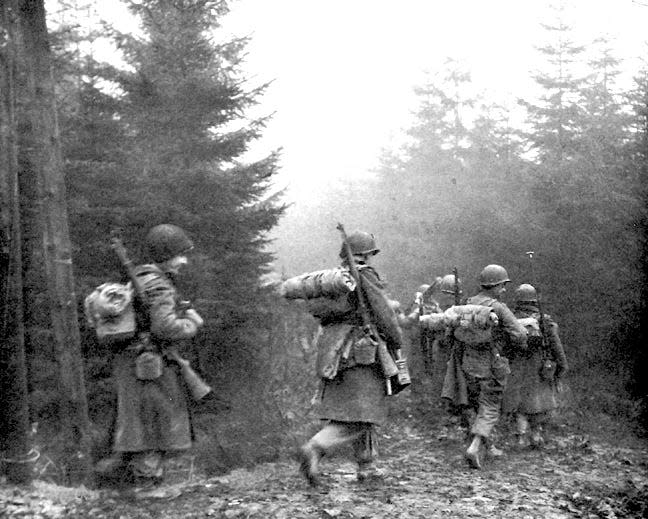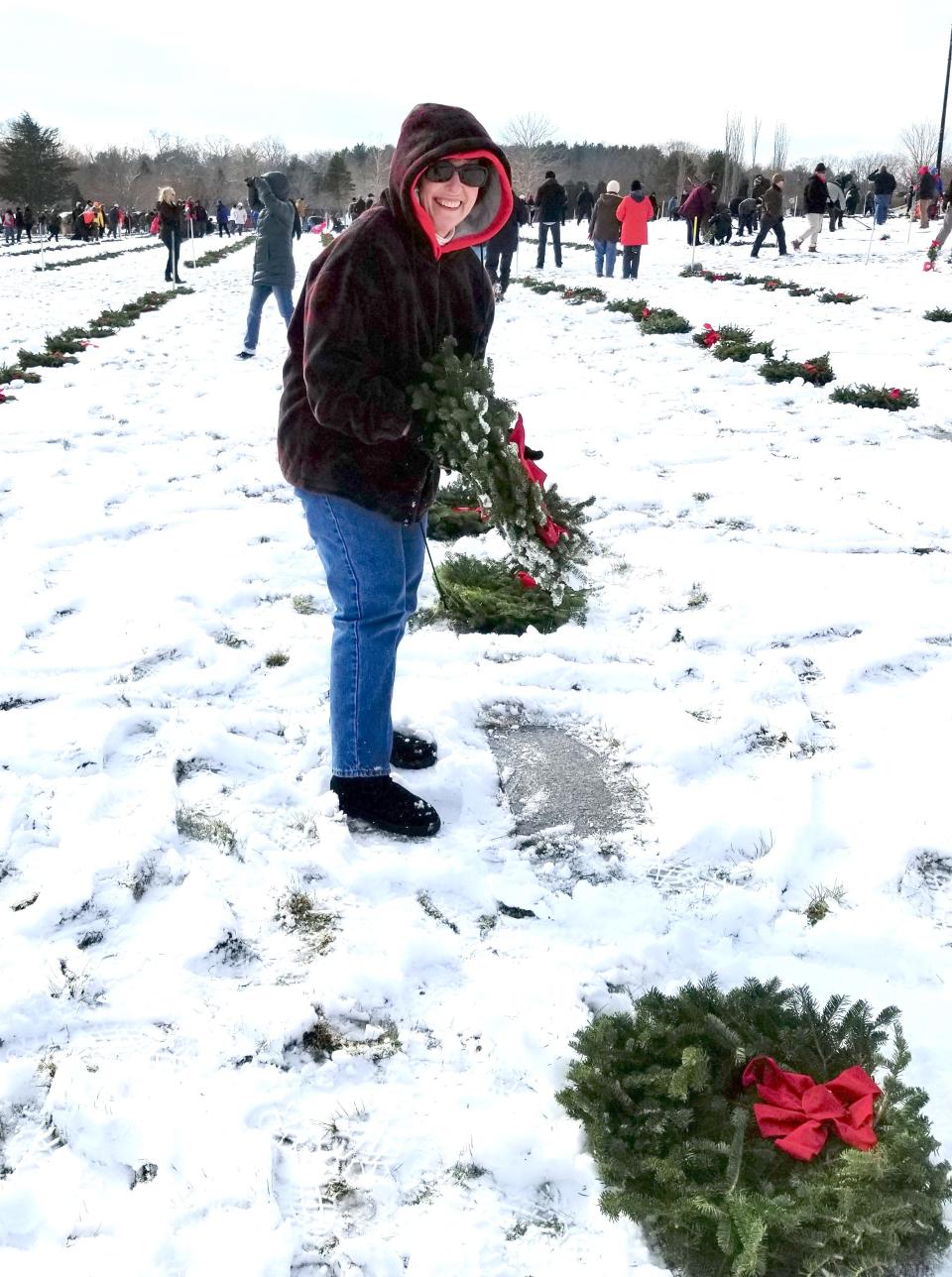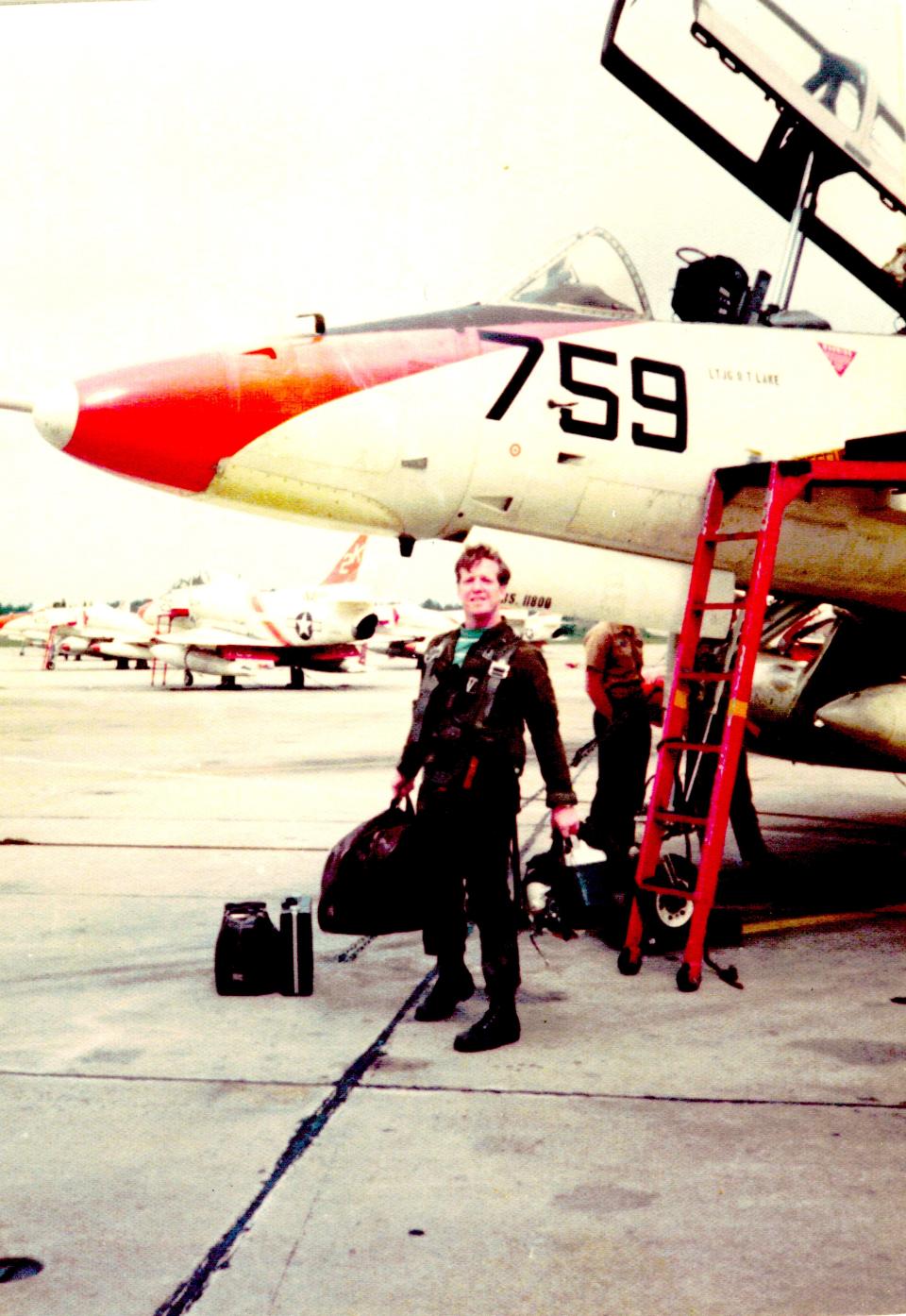War stories: Patricia Morgan's family legacy drives her resolute support of veterans
Rep. Patricia Morgan, R-West Warwick, is a strong advocate for anything improving the lives of our veterans and active service members.
This advocacy results from the strong military background in her family, as well as her own experiences as the wife of a Navy pilot.
"I was surrounded by veterans of World War II as I grew up in Ohio,” she said. Her father and uncle (Thomas and Henry Lazar) both enlisted in March 1942 and fought until the war ended.

"And I was married to a naval aviator who served at the end of the Vietnam War. I can bear witness to the effects that the stresses of a military life can have.”
World War II
After basic training, her uncle Henry joined Company K of the 3rd Battalion, 112th Infantry Regiment. He and his unit fought in the battle for the Heurtgen Forest. GIs would learn to equate the Huertgen with gloom, misery, wounds and death.
Heurtgen was one of the most costly (and useless) battles in our history. More than 24,000 Americans were killed, missing or wounded, and another 9,000 succumbed to the wet and cold. “In retrospect, it was a battle that should not have been fought,” wrote Gen. James Gavin, then commanding officer of the 82nd Airborne.
Henry was captured and spent time as a POW before being liberated to fight again. (Family lore is that he was captured three times and freed each time.)
“When he came home, he was no longer the smiling and confident person who left,” Morgan recalls. “Although he was proud of his service, I never heard him talk about it.”
He never married, preferred long walks by himself and never talked about his wartime experiences. But he would show up at the houses of friends where they played pinochle and shared the camaraderie that veterans share.
Her father, Thomas, on the other hand, was fairly outgoing about his service and maintained a fierce pride of his time with the 82nd Airborne. “His uniform was tucked safely away in a hall closet when I was growing up.”
Thomas had enlisted in March 1942. When the 82nd Infantry Division was reorganized as the 82nd Airborne Division in August 1942, it included the 325th Glider Infantry Regiment. Thomas was in it.

After training in Louisiana, the regiment deployed to North Africa, participated in the 1943 landing at Salerno, Italy. The 325th then moved to England to train for the Normandy invasion.
That’s where Thomas met Doris Lane. Born in 1925, Doris survived the Blitz, during which she rescued an injured man from the rubble of a bombed-out building.
He was 29, she was 19. They married a few days before D-Day.
The day after D-Day, the 325th conducted a glider-borne assault. They fought in Normandy for more than a month, and casualties were heavy: 5,245 troopers killed, wounded or missing – 46% of their strength.
“He fought in every battle, from Africa to Germany, but he rarely talked about combat,” said Morgan. Whenever he spoke about the war, it was about the men he served with. “On occasion, we took trips to their homes and visited with them.”
There was one exception to his reticence. On May 2, 1945, he was part of the force that liberated the Wöbbelin concentration camp in northern Germany. They found about 1,000 dead prisoners. In the aftermath, the U.S. Army ordered the townspeople to visit the camp and bury the dead.
On May 7, 1945, the 82nd Airborne Division conducted funeral services for 200 prisoners. Attending the ceremony were local citizens, captured German officers and several hundred GIs.
“His anger many years later was palpable and intense,” she said. ”He talked of the living reduced to skeletons, and the piles of dead, of making the townspeople walk by and view the horrors they had allowed. His wrath never cooled.”
Personal experience
When the war ended, Doris sailed to America aboard the SS Saturnia, arriving in March 1946.
“I grew up in Canal Fulton, Ohio, a small town south of Akron. I had two older sisters, Carol and Susan,” said Morgan.
"In 1958, when I was a little girl, my father changed our name from Lazar to Lane. He had been bullied as a child for being Polish and didn’t want his three girls to suffer the same treatment. "
In 1966, three recent graduates from her high school were killed in Vietnam. “They had joined together, and their deaths rocked my small town. I remember being so sad, but also committed to the idea that they had given their lives for our country.”
After graduating from Northwest High School as valedictorian, Patricia went on to Kent State, a few miles away. She was there when four students were killed during the Kent State protests in 1970 – “another incident that had a profound effect on my life.”

Her boyfriend, Bernard Mulligan, joined the Navy and graduated from Aviation Officer Candidate School in Pensacola. After training in A-4 Skyhawks in Florida, he was sent to NAS Meridian in Mississippi.
“I joined Bernard in Meridian, where we were married.”
She had an Ohio teaching certificate, and Meridian was short on teachers for their new special-education classes. “To teach, I had to take courses from Mississippi State. I taught reading to 60 children at George Washington Carver Junior High School.”
After three years, the Navy sent them to Cecil Field in Jacksonville, where Bernard flew A-7 Corsairs. Their first son was born there.
“The danger of military service hit home for me during this assignment. My husband’s unit was deployed to Nevada for flight training. His best friend made an error on a night op and flew his jet into a mountain.
"We attended the memorial and cried as the jet representing him broke off from the Missing Man formation. We winced at the gun salute, we comforted his widow and children and we dealt with the loss."

Training for combat was dangerous. “My husband was on a carrier waiting to launch when a ramp strike killed another pilot and navigator. Bernard was doused with jet fuel that could have killed him had a spark hit his aircraft,” she remembers.
“Along with other Navy wives, my job was to endure the absences, face the danger over which I had no control, and pick up the pieces when tragedy struck.”
But the war ended before his deployment orders came through, and they were assigned to the Naval War College in Newport in 1976. Bernard left the Navy in 1978, and they decided to stay in Rhode Island, where three more sons were born.
“I was a Navy wife for over eight years, and that makes me keenly aware that spouses’ lives are inextricably woven with those of their military partners,” she concluded.
In 1985, after earning a Rhode Island teaching certificate, she returned to the classroom as a special-education teacher. “I taught at Cranston West for 10 years, until I was recruited to join Salomon Smith Barney as a financial adviser. I now work for Spire Investment Partners, headquartered in Virginia.”
She received her master's in special education from Rhode Island College in 1990 and completed the coursework for a principal’s certificate at Providence College in 2008.
“Yes," she said. "I have gone to school … a lot!”
Patricia’s father and mother joined her here in 2005. “They grew to love Rhode Island, and, yes, as in every home they inhabited, an 82nd Airborne poster hung on their wall.”
Political life
Elected to the Rhode Island House in 2010, Morgan, a Republican, became the first female minority leader in 2015. She is now serving her 12th year in the House.
“Two important accomplishments I helped bring about are building the new Veterans Home in Bristol and eliminating the state income tax on military pensions," she said.
“I look forward to continuing my advocacy for our military members.”
Rep. Patricia Morgan is the mother of three sons, Bernie, Stephen and Brian, all employed in private industry. She has lived in Rhode Island for 48 years, 40 of them in West Warwick.
This article originally appeared on The Providence Journal: Patricia Morgan brings personal experience to her passion for veterans

